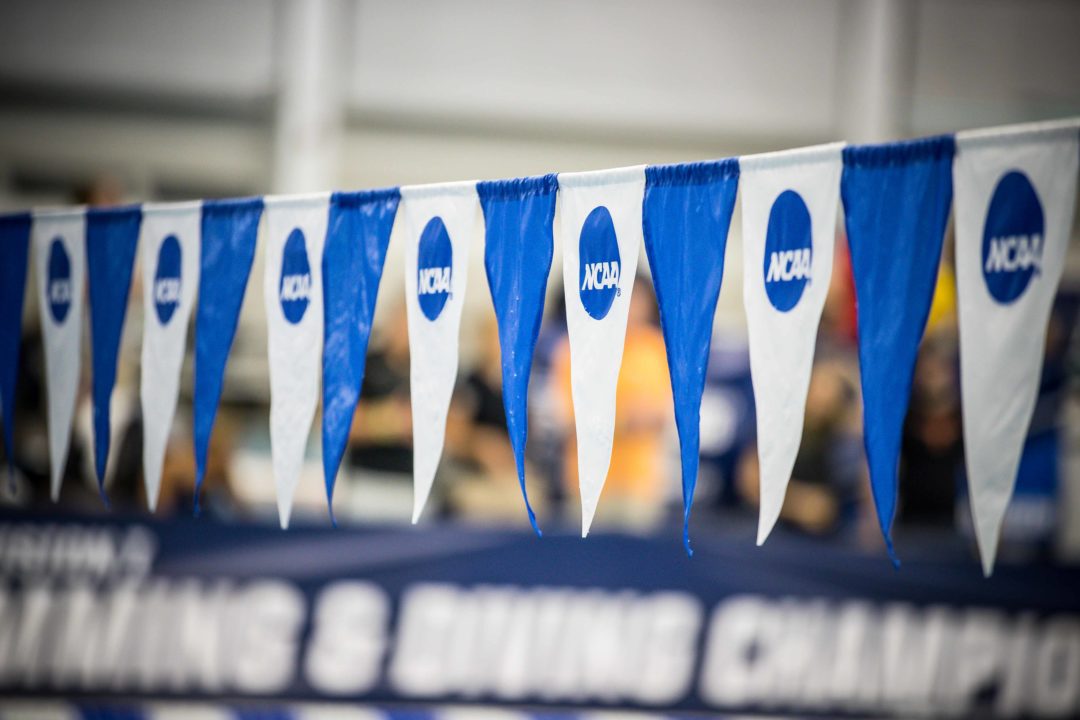SwimSwam Pulse is a recurring feature tracking and analyzing the results of our periodic A3 Performance Polls. You can cast your vote in our newest poll on the SwimSwam homepage, about halfway down the page on the right side, or you can find the poll embedded at the bottom of this post.
Our most recent poll asked SwimSwam readers to weigh in on California’s new bill that would allow student-athletes to profit off their names, images and likenesses, but also has the NCAA threatening a ban on California schools.
RESULTS
Question: Do you think college athletes should be allowed to profit off of their own names and images?
- Yes, athletes deserve a cut of the revenue they generate. – 43.5%
- Yes, in principle. But I’m concerned about the effects on non-revenue sports. – 42.6%
- No, college athletes are already given enough. – 13.9%
86% of voters agreed with college athletes’ abilities to profit off of their own names and images, but about half that voting bloc expressed concern about the effects to non-revenue sports.
The issue was at center stage last week, with California considering a bill that would allow college student-athletes to profit off of their own names, images and likenesses. The move would go against current NCAA policies, though, and the college athletics organization has threatened to ban California schools from NCAA Championship contention if the bill is passed.
The debate is an intriguing one, because it’s more specific than the usual discussion over whether college athletes should be paid. NCAA amateurism rules don’t allow athletes to earn a profit from their own names, images or likenesses as college athletes – hence suspensions for athletes like former football player Johnny Manziel, who was suspended for half a game for selling his own signature.
The rules have been heavily criticized in recent years with many arguing that student-athletes deserve a portion of the huge amounts of money they make for the NCAA. That argument, however, only really holds water in the top few revenue-generating sports, most notably football and basketball. Voters in our poll heavily agreed in principle with allowing college athletes to profit off of their own names, but about 42% of voters were concerned that allowing revenue-generating athletes to make money could have ripple effects on non-revenue sports.
43.5% were fully in favor of lifting the amateurism restrictions on athletes – or at least loosening them, as the Olympics have done over the years. But 42.6% agree in principle, while worrying that opening the floodgates of money could cause NCAA athletic departments to focus even more on creating marketing and money-making opportunities for athletes revenue-generating sports, while taking away resources from the sports (like swimming and diving) that are mostly subsidized by the profits those revenue sports make.
Meanwhile 13.9% said that athletes are already compensated well enough (through scholarships or educational opportunities, though in sports like swimming, scholarships are relatively rare and often minimal).
Below, vote in our new A3 Performance Poll, which asks voters for the most likely of four candidates to make the American 4×100 free relay for the 2020 Olympics:
ABOUT A3 PERFORMANCE
The A3 Performance Poll is courtesy of A3 Performance, a SwimSwam partner


You should be allowed to be sponsored or endorsed as a college athlete. You should also be allowed to make money in college. Some of these athletes get injured and end up making nothing anyways. Whether you let the school pay you or not is a different question.
Dissolve the NCAA and abolish athletic scholarships. Problem solved.
I see the benefit to being allowed to get sponsorships and other financial support, but don’t necessarily think it is necessary for the school to directly pay athletes. I think direct pay will hurt swimming and the other non revenue sports, but if anyone could approach speedo or arena or whoever for a sponsorship, that would be extremely positive for our sport.
I agree 100%. The polls options were absurdly limited.
I know these athletes think they want to get paid, but they don’t. Yes the top 1% of the team will benefit from this, think about your superstar players. Than think of the other 70 guys on the team you don’t know. Once they are paid they not student athletes anymore they become employees. That means you can be fired for poor performance, poor behavior, or a variety of other reasons. Show up late to practice your fired instead of being taught the lessons of showing up on time. Make a poor decision in public, no more learning lessons and teaching them from there mistakes, now your fired. Some will make money, but all will loose what protection they have… Read more »
But it’s already like that. If you don’t perform well for the team, you’re cut. If you show up late to practice without alerting the coach, you’re reprimanded. If you’re on scholarship right now, you already are viewed as an employee, the only issue is that you’re not being fully compensated for you’re work. In any other job, if you weren’t paid enough, you could take up a second job. Not ideal but you could do it. In the NCAA, you’re not even allowed to do that. If the NCAA does allows athletes to be paid directly for their athletic prowess, why shouldn’t they be treated as employees? They would be. I don’t know a job where a supervisor doesn’t… Read more »
Swimming will take a beating